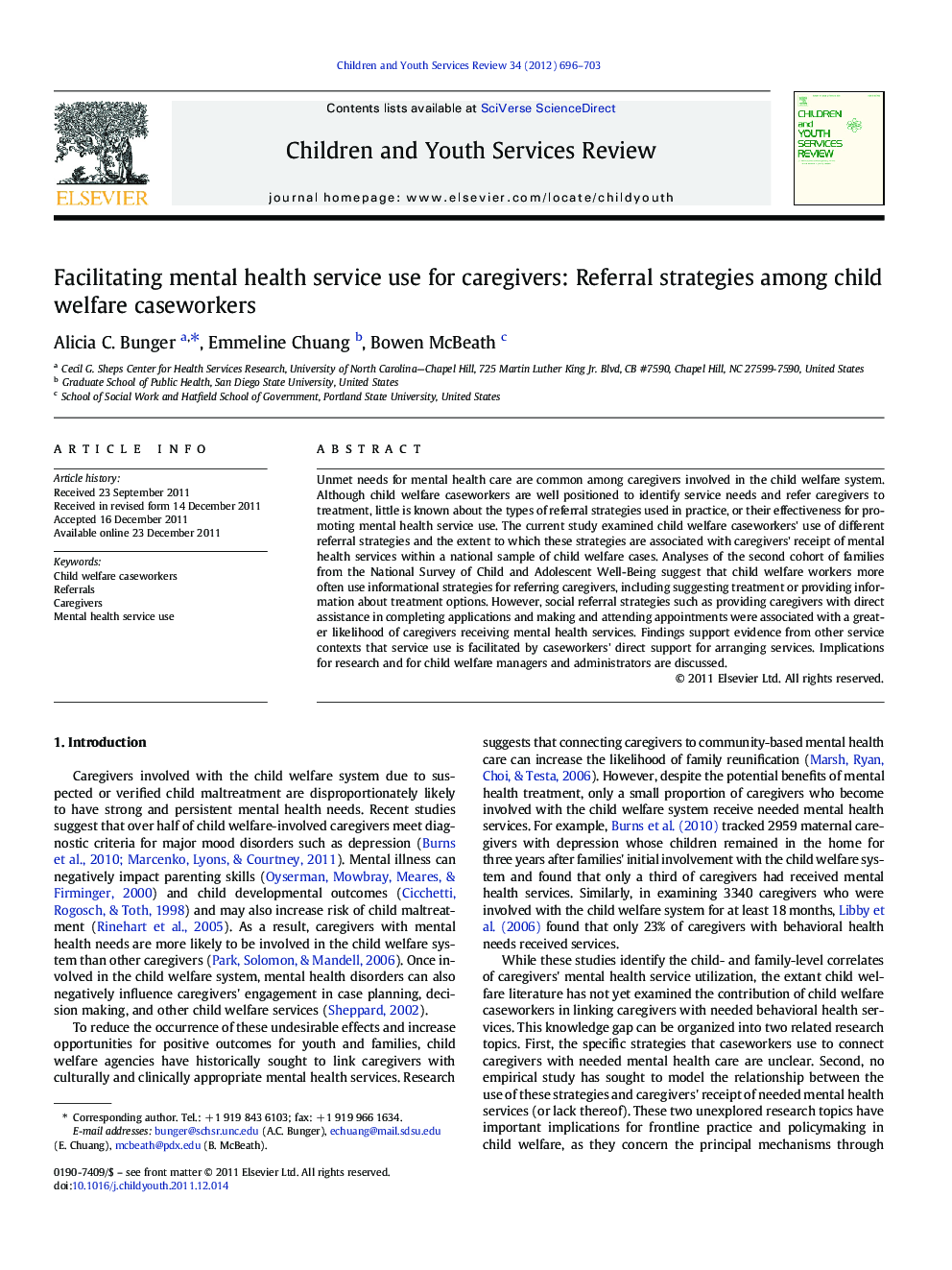| Article ID | Journal | Published Year | Pages | File Type |
|---|---|---|---|---|
| 347011 | Children and Youth Services Review | 2012 | 8 Pages |
Unmet needs for mental health care are common among caregivers involved in the child welfare system. Although child welfare caseworkers are well positioned to identify service needs and refer caregivers to treatment, little is known about the types of referral strategies used in practice, or their effectiveness for promoting mental health service use. The current study examined child welfare caseworkers' use of different referral strategies and the extent to which these strategies are associated with caregivers' receipt of mental health services within a national sample of child welfare cases. Analyses of the second cohort of families from the National Survey of Child and Adolescent Well-Being suggest that child welfare workers more often use informational strategies for referring caregivers, including suggesting treatment or providing information about treatment options. However, social referral strategies such as providing caregivers with direct assistance in completing applications and making and attending appointments were associated with a greater likelihood of caregivers receiving mental health services. Findings support evidence from other service contexts that service use is facilitated by caseworkers' direct support for arranging services. Implications for research and for child welfare managers and administrators are discussed.
► This study examined different types of caseworker referral strategies. ► Caseworkers most often use informational referral strategies. ► However, arranging services may be more effective. ► These social strategies were linked with caregiver mental health service use.
